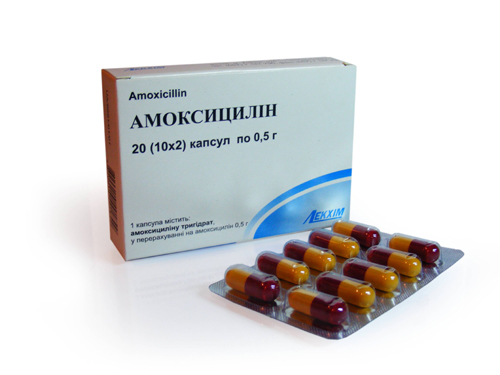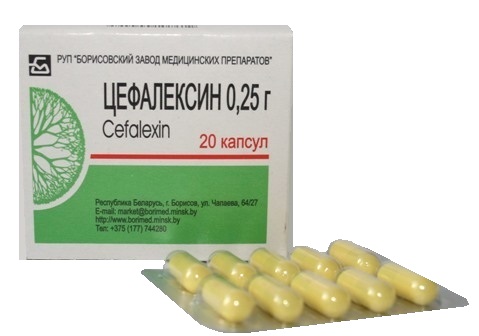Antibiotics for kidney disease
Diseases of the internal organs of the small pelvis are accompanied by unpleasant sensations in the lower abdomen. Only a urologist is able to prescribe effective antibiotics for kidney disease, which will effectively help each individual patient. Therefore, if you find symptoms of inflammation, do not delay going to the doctor. Indeed, during periods of seasonal cooling in the body, diseases and inflammatory processes in the pelvic organs become aggravated. The most common ailments are:
- pyelonephritis (inflammation of the kidneys);
- cystitis (inflammatory processes of the bladder);
- urethritis (urinary tract disease).
Is it dangerous to take antibiotics to treat kidney disease?
It is not advisable to self-medicate with these problems, they can progress and develop into chronic forms, or cause various complications in the kidneys or bladder (for example, enuresis). When characteristic symptoms are found, you should immediately consult a urologist. He directs the patient for diagnosis and, based on the results, prescribes an effective course of treatment. Doctors always resort to the help of antibacterial agents. Despite the negative impact of antibiotics on the body (violation of microflora, kidney failure), they are able to cure inflammation in a short time.
After antibiotics, the work of the intestinal microflora is disrupted, therefore, at the end of therapy, urologists recommend a course of restoration of the body with probiotics (means based on herbal components).
It is worth noting that antibacterial agents are not a panacea for pain in the kidneys; tablets are used in combination for treatment. Modern medicine provides a wide range of drugs for the kidneys, whose action is aimed at combating the symptoms and the individual causative agent of the disease. To eliminate the symptoms, antispasmodics are taken, to relieve inflammation - anti-inflammatory drugs, to lower the temperature - antipyretic drugs.
What antibiotics are most commonly prescribed by doctors for kidney disease? There are several groups of drugs whose action is concentrated on the suppression of a particular bacterium. There are 6 groups in total:
- antibiotics of the aminopenicillin group;
- cephalosporins;
- fluoroquinolones;
- aminoglycosides;
- carbamazepines;
- macrolides.
Well-known groups of antibiotics
Aminopenicillin group
 Preparations of the aminopenicillin group qualitatively eliminate E. coli and enterococci.
Preparations of the aminopenicillin group qualitatively eliminate E. coli and enterococci. First of all, doctors refer to the group of aminopenicillins. Preparations of this group qualitatively eliminate Escherichia coli and enterococci, which are often the causative agents of inflammation in the organs of the genitourinary system (in particular, cystitis and pyelonephritis). Effective at the moderately progressive stage of the disease. It is allowed to appoint women during pregnancy and lactating mothers, they are slightly absorbed into milk. Known antibiotics: "Amoxicillin", "Penicillin", "Amoxiclav" and "Ampicillin".
Injections "Ampicillin"
"Ampicillin" is available in the form of granules, capsules and powders. Belongs to the group of aminopenicillins with a wide spectrum of action. Ampillicin injections are prescribed for diseases of the kidneys and bladder, the drug is effective only if the disease occurs during moderate severity, in other cases it is ineffective.
Cephalosporin group
This group is usually prescribed for complications. The healing substance - 7-ACC acid, prevents the transition of the acute form to the purulent form of pyelonephritis. The drugs of this group are very effective and the patient will feel better in a few days. They are non-toxic and do not pose any danger to the body. Modern medicine knows 4 generations of antibiotics of this group, they have different indications for the appointment:
- 1st, 2nd generation is prescribed for the treatment of an infection that causes inflammation (the action is similar to the action of drugs from the aminopenicillin group);
- 3rd generation - these are stronger drugs with improved pharmacokinetic properties; struggle with more severe forms of the disease;
- The 4th generation has a wide range of action and is used for patients with the most severe degree of the disease.
 Prescribe drugs of the cephalosporin group for complications.
Prescribe drugs of the cephalosporin group for complications. The group has a number of contraindications and is prohibited for patients with renal insufficiency, an allergic reaction to the treating substance, as well as for pregnant and lactating women. Names of well-known drugs: Cefalexin, Cefalotin, Zinnat, Klaforan, Tamycin, Suprax, Ceforal, Tsiprolet. In case of complications, injections of the 2nd and 3rd generations are prescribed - Cefatoxime, Cefazolin.
Fluoroquinolones
New generation of antibacterial drugs:
- The 1st generation of drugs is prescribed in emergency cases, when there is a possibility of death. It has a number of contraindications - this is a high sensitivity to the treating components, renal and hepatic insufficiency, epilepsy, atherosclerosis, poor blood circulation in the brain, old age. The following drugs are known: Ciprofloxacin, Cifran, Fleroxacin, Ofloxacin, Pefloxacin.
- The 2nd generation is used in the chronic form of inflammation or when there is a transition to the form of exacerbation. Effective against pneumococci. Contraindications are the same with the 1st generation of drugs. These include Levofloxacin and Sparfloxacin.




